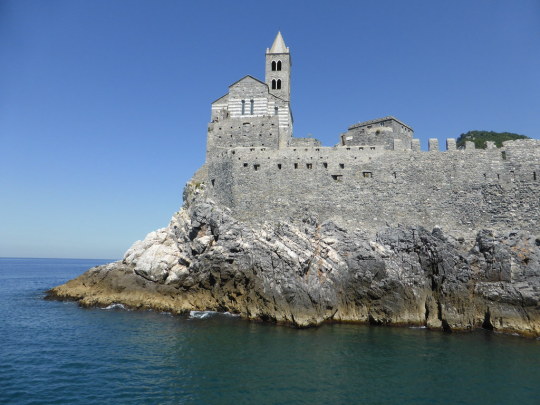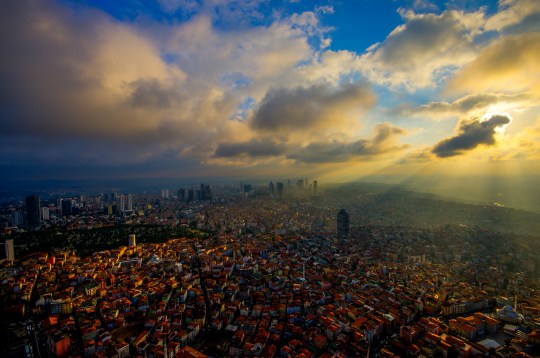Quote
Rebellion against my identity is always one possible mode of expressing it.
Alasdair MacIntyre
#communitarianism#identity#rebellion#political theory#political ideology#political philosophy#philosophy#social theory#politics#political ideologies#alasdair macintyre#macintyre
23 notes
·
View notes
Quote
Returning to the literature of political science and development economics, it becomes clear these disciplines have undermined the very possibility of understanding African economic and political facts. In spite of the countless critiques made of theories of social evolutionism and ideologies of development and modernization, the academic output in these disciplines continues, almost entirely, in total thrall to these two teleologies. This thralldom has had implications for understanding the purposes of these disciplines in Africa, for the conception of their object, and for the choice of their methods. Mired in the demands of what is immediately useful, enclosed in the narrow horizon of 'good governance' and the neo liberal catechism about the market economy, torn by the current fads for 'civil society,' 'conflict resolution,' and alleged 'transitions to democracy,' the discussion, as habitually engaged, is primarily concerned, not with comprehending the political in Africa or with producing knowledge in general, but with social engineering. As a general rule, what is stated is dogmatically programmatic; interpretations are almost always cavalier, and what passes for argument is almost always reductionist. The criteria that African agents accept as valid, the reasons they exchange within their own instituted rationalities, are, to many, of no value. What African agents accept as reasons for acting, what their claim to act in the light of reason implies (as a general claim to be right, avoir raison), what makes their action intelligible to themselves: all this is of virtually no account in the eyes of analysts. Since the models are seen as self-sufficient, history does not exist. Nor does anthropology. It is enough to postulate, somehow, in a form totally timeless, the necessity of 'freeing' the economy from the shackles of the state, and of a reform of institutions from above, for this economy, these institutions, to function on the basis of norms decreed universal and desirable.
Achille Mbembe, On the Postcolony
#critical theory#africa#postcolonialism#mbembe#achille mbembe#on the postcolony#postcolony#postcolonial theory#political science#economics#anthropology#development#developmentalism#teleology#social engineering#post-development#postdevelopment#conflict resolution#good governance#market economy#civil society#democracy
23 notes
·
View notes
Photo

San Pietro Church, Porto Venere, Italy (by Skiappa Miki)
789 notes
·
View notes
Quote
The power of The Black Jacobins lies in James's appreciation that the agents of the revolution in Saint-Domingue not only failed to obey the given rules of history, they turned them inside out. They were behaving not as the laws of history decreed they should, but as if they were occupying another place and another time, neither of which properly belonged to them.
Bill Schwarz, “Haiti and Historical Times,” in The Black Jacobins Reader
#CLR James#The Black Jacobins#Black Jacobins#marxism#history#postcolonialism#decolonialism#critical race theory#critical theory#slavery#black history#bill schwarz#haiti#haitian revolution#haiti and historical times#the black jacobins reader#charles forsdick#christian hogsbjerg#C.L.R. James#saint-domingue#world history#colonialism#revolution
3 notes
·
View notes
Quote
Philosophy leaps ahead on tiny toeholds; hope and intuition lend wings to its feet. Calculating reason lumbers heavily behind, looking for better footholds, for reason too wants to reach that alluring goal which its divine comrade has long since reached.
Friedrich Nietzsche, Philosophy in the Tragic Age of the Greeks
#philosophy#reason#nietzsche#Philosophy in the Tragic Age of the Greeks#creativity#instrumentality#hope#intuition
9 notes
·
View notes
Quote
We ought to be learning from our neighbors precisely as the Greeks learned from theirs, not for the sake of learned pedantry but rather using everything we learn as a foothold which will take us up as high, and higher than our neighbor.
Friedrich Nietzsche, Philosophy in the Tragic Age of the Greeks
#philosophy#education#nietzsche#Philosophy in the Tragic Age of the Greeks#greek philosophy#ancient philosophy#ancient greek philosophy#greeks#quotable quotes
12 notes
·
View notes
Quote
Discourse is not life: its time is not your time; in it, you will not be reconciled to death; you may have killed God beneath the weight of all that you have said; but don't imagine that, with all that you are saying, you will make a man that will live longer than he.
Michel Foucault, The Archaeology of Knowledge
#death of god#death of man#foucault#poststructuralism#the archaeology of knowledge#critical theory#nietzsche#discourse#god
14 notes
·
View notes
Quote
If one recognizes in science only the linear accumulation of truths or the orthogenesis of reason, and fails to recognize in it a discursive practice that has its own levels, its own thresholds, its own various raptures, one can describe only a singly historical division, which one adopts as a model to be applied at all times and for all forms of knowledge: a division between what is definitively or what is not yet scientific. All the density of the disconnexions, the dispersion of the ruptures, the shifts in their effects, the play of the interdependence are reduced to the monotonous act of an endlessly repeated foundation.
Michel Foucault, The Archaeology of Knowledge
#the archaeology of knowledge#science#foucault#critical theory#poststructuralism#social theory#philosophy#history
35 notes
·
View notes
Quote
Discourse, at least as analysed by archaeology, that is, at the level of positivity, is not a consciousness that embodies its project in the external form of language; it is not a language, plus a subject to speak it. It is a practice that has its own forms of sequence and succession.
Michel Foucault, The Archaeology of Knowledge
#poststructuralism#foucault#critical theory#discourse#language#the archaeology of knowledge#archaeology#discourse analysis#history#theory#philosophy
3 notes
·
View notes
Quote
Thinking of cops as violence workers isn’t to suggest police share any solidarity or real interests with workers in other sectors. Some on the left have argued that cops should be included within the 99 percent and therefore leftist activists should engage in more friendly, reformist relations with cops so as to ultimately convince them to switch their loyalty away from the 1 percent. However appealing this might seem, it resonates only to the extent that it hinges on an ahistorical, hopeful naiveté untethered to actually existing historical patterns and contemporary conditions. Police violence is most often used against low-wage workers, the surplus populations excluded from a consistent, livable wage, and the activists and movements challenging the status quo.
David Correia and Tyler Wall, Police: A Field Guide
#police#tyler wall#david correria#police: a field guide#working class#workers#work#violence workers#violence#political theory#political philosophy#critical theory#capitalism#police violence#fuck the police
2 notes
·
View notes
Quote
[Police] rarely use violence and instead use the word 'force' to refer to their violence. The term 'violence' is reserved for the non-state, unsanctioned behaviors or actions of anyone who isn’t a cop, anyone who defies police authority to dictate any given situation. Yet frequently police and those who protest police violence agree on the definition of police violence as an injurious act against a body defined in relation to professional standards, usually understood as excessive acts that defy legal or institutional guidelines. We should look beyond this definition because it ignores the ways nonlethal police violence, so commonplace and everyday, goes unseen. Researchers, journalists and reformers can spend a lot of time with police and never see cops use violence and therefore miss the ways that even routine policing is experienced by the poor as nothing but constant humiliation and indignity. This too is violence and should be seen as such.
David Correia and Tyler Wall, Police: A Field Guide
#police#critical theory#police: a field guide#david cerrreia#tyler wall#political theory#social theory#politics#political philosophy#fuck the police#acab#force#use of force#policing#police violence#violence
98 notes
·
View notes
Quote
The curfew is an anti-public policy. It demands that all of us, at all times, justify our public existence by proving our status as workers. It demands we all just stay home, isolated from a nighttime social life outside of the bourgeois family, preparing for the next day of work—and if you are to be out, you better be buying something or working for a wage. It is the ruling class’s hatred of any mode of being that doesn’t make them a buck. The curfew is the ruling class distrust for all the parts of our lives that aren’t yet subsumed by the laws of capitalist labor and the wages of work.
David Correia and Tyler Wall, Police: A Field Guide
#fuck the police#black lives matter#curfews#curfew#policing#critical theory#political theory#criminology#police#david correia#tyler wall#class#capitalism#public policy#politics#political philosophy#radicalism#leftism#police: a field guide
31 notes
·
View notes
Quote
If there is some abuse of power coming from leaders described as being somewhat ‘absolute,’ it is because there is indeed something of the absolute in the heads of those being led, otherwise it is impossible to see where the leaders could stock up to it. Yet the absolute is not good. It is ‘that which exists independently of any condition or relation with something else.’ The need for the perfect being comes from way back in history. Leaders inherit it before they even profit from it and make unfortunate uses of it with which we are all familiar.
Fernand Deligny, The Arachnean and Other Texts
#politics#authority#absolutism#critical theory#communism#fernand deligny#the arachnean and other texts#absolute#power#leaders#followers
6 notes
·
View notes
Quote
It is obvious that...if a clause of the [charter of human rights] concerned us, it would speak about the right to every human to language. But why is it that every right entails the necessity of separating the human from the species, it being understood that the word species is common to everything that lives; the word species evokes a kind of common good.
Fernand Deligny, The Arachnean and Other Texts
#speciesism#continental philosophy#human rights#language#humanity#humans#fernand deligny#philosophy#philosophy of language#political philosophy#political theory#the arachnean and other texts#the arachean#rights#the universal declaration of human rights#universal declaration of human rights#international law#international human rights law
2 notes
·
View notes
Quote
Art is found everywhere in nature, and what is surprising is that man still respects something that is no more useful than a spider web in the corner of a room. Which still leaves a little hope as far as the persistence of primordial communism is concerned. One must believe it is just as tenacious as turtles before all the floods, or, to put it another way, as tenacious as the lines on the palms of our hands.
Fernand Deligny, The Arachnean and Other Texts
#communism#art#aesthetics#nature#continental philosophy#fernand deligny#the arachnean and other texts#networks#spiders#spider webs#webs#the arachnean#primordial communism#turtles#floods#critical theory#political philosophy#philosophy#political theory#hope#art theory#philosophy of art#leftism
3 notes
·
View notes
Quote
What a shame that humans didn’t place heaven at the center of the earth when they elaborated their mythologies. As newcomers, they could have made themselves discreet, timid, respectful, seeing predecessors everywhere, in all vegetation, in all animals; actually, they did think that way, but almost furtively, swept up in the vogue of the thought-out project whose utility seemed undeniable.
Fernand Deligny, The Arachnean and Other Texts
#continental philosophy#animals#environmentalism#critical theory#fernand deligny#the arachnean and other texts#the arachnean#humanity#humans#anthropocentrism#inoperability#philosophy#human condition#vegetation#animality#projects
4 notes
·
View notes
